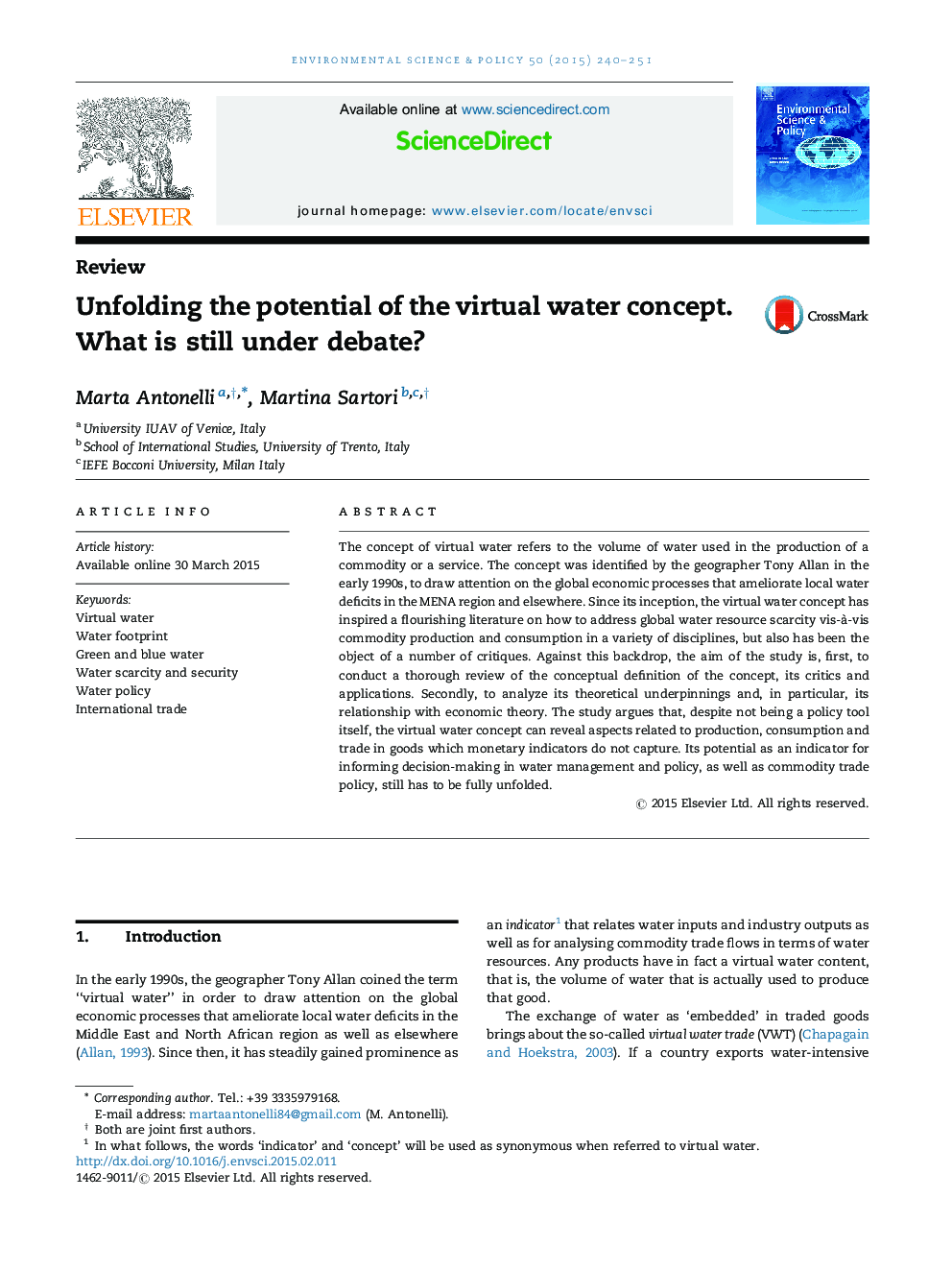| Article ID | Journal | Published Year | Pages | File Type |
|---|---|---|---|---|
| 1053496 | Environmental Science & Policy | 2015 | 12 Pages |
•Virtual water has brought attention to fundamental issues regarding water resources.•Global trade establishes a link between the source of water demand and the site of water consumption.•The concept is inherently economic.•The concept can reveal aspects related to production, consumption and trade in goods which monetary indicators do not capture.
The concept of virtual water refers to the volume of water used in the production of a commodity or a service. The concept was identified by the geographer Tony Allan in the early 1990s, to draw attention on the global economic processes that ameliorate local water deficits in the MENA region and elsewhere. Since its inception, the virtual water concept has inspired a flourishing literature on how to address global water resource scarcity vis-à-vis commodity production and consumption in a variety of disciplines, but also has been the object of a number of critiques. Against this backdrop, the aim of the study is, first, to conduct a thorough review of the conceptual definition of the concept, its critics and applications. Secondly, to analyze its theoretical underpinnings and, in particular, its relationship with economic theory. The study argues that, despite not being a policy tool itself, the virtual water concept can reveal aspects related to production, consumption and trade in goods which monetary indicators do not capture. Its potential as an indicator for informing decision-making in water management and policy, as well as commodity trade policy, still has to be fully unfolded.
